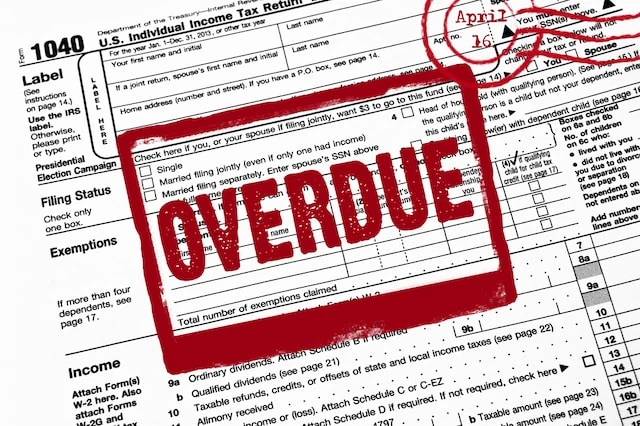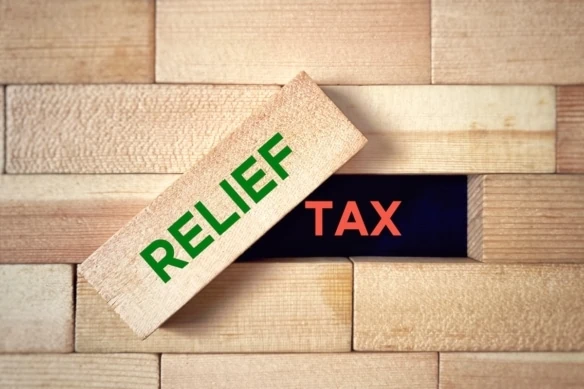As with everything else, the IRS was thrown into a state of chaos by the COVID-19 pandemic. Workers were sent home, phones were not answered, mail was not opened, tax returns weren’t processed, refunds weren’t sent—you get the picture. Plus, on top of all that, the tax agency was suddenly required to send three rounds of stimulus checks and six-months worth of advance child tax credit payments.
At this point, the IRS has almost returned to normal operations. There are just a few things it still needs to restart, such as mailing automated reminders to taxpayers with overdue tax bills—which the IRS will resume starting in January.
However, while the reminders weren’t being sent, failure-to-pay penalties and interest continued to grow for people and businesses who owed back taxes. IRS Commissioner Danny Werfel noted in a statement that “we have been concerned about taxpayers who haven’t heard from us in a while suddenly getting a larger tax bill.” As a result, the IRS is waiving about $1 billion in tax penalties (but not interest) for approximately 4.7 million taxpayers that weren’t sent collection reminders during the pandemic.
WealthUp Tip: If you owe federal income tax but don’t pay the entire balance on time, you could be hit with a failure-to-pay penalty equal to 0.5% of your existing tax liability for each month the tax remains unpaid. However, the penalty won’t exceed 25% of your unpaid taxes. If you don’t pay up within 10 days of getting a levy notice from the IRS, the penalty jumps to 1% per month.
Who Qualifies For Tax Penalty Relief

The penalty relief is only allowed for certain taxpayers—individuals, businesses, estates, tax-exempt organizations, and more—impacted by the suspension of reminder notices.
Specifically, a penalty waiver is only available for taxpayers with unpaid federal income taxes who satisfy all the following requirements:
- As of Dec. 7, 2023, owes less than $100,000 of federal income tax for the 2020 or 2021 tax year, not counting any applicable additions to tax, penalties, or interest (the $100,000 limit applies separately to each return)
- Was issued an initial balance due notice by Dec. 7, 2023, for the 2020 or 2021 tax year
- Is otherwise liable during the “relief period” for failure-to-pay penalties connected to a 2020 or 2021 tax return (the relief period begins on the date the IRS issued an initial balance due notice or Feb. 5, 2022, whichever is later, and ends on March 31, 2024)
There’s no relief from failure-to-pay penalties that accrued before or after the relief period, and no relief for interest that accrues during the relief period.
In addition, a waiver won’t be granted for penalties levied for tax fraud. Relief is also unavailable if the IRS has accepted an offer in compromise, or if a failure-to-pay penalty is settled in a closing agreement or finalized in a judicial proceeding.
Related: Child Tax Credit FAQs [What Every Parent Needs to Know]
How To Get Your Tax Penalty Waived

According to the IRS, the penalty relief is automatic. Eligible taxpayers don’t need to do anything to have their penalties waived.
Plus, if a taxpayer already paid failure-to-pay penalties related to their 2020 or 2021 tax returns, the IRS will refund the penalty or credit the payment toward another outstanding tax debt.
The IRS will also issue a notice to each eligible taxpayer reflecting the updated amount owed and any refund or credit resulting from the automatic abatement.
Reminder Notices to Resume in 2024

The IRS also announced that it will begin sending automated reminder notices and letters in January to individuals with unpaid taxes from before 2022, and to other taxpayers with unpaid taxes from before 2023. The IRS will gradually issue the notices and letters in stages in 2024 to give taxpayers who have questions or need help a chance to receive proper assistance.
Taxpayers who receive the notices and letters will be reminded of their tax liability and directed to appropriate IRS contacts if they want to make alternative arrangements to resolve their tax bill.
Taxpayers with long-overdue tax bills will receive additional notices informing them of additional, more serious steps in the tax collection process.
What If You Still Can’t Pay Your Taxes?

There are a few options to consider if you still can’t pay your income tax bill. You can go on the IRS website and apply for a payment plan. You can also file Form 9465 to request an installment plan or Form 843 to request a first-time penalty abatement.
Other options if you can’t make your tax payments include an “Offer in Compromise” or a temporary delay of the collection process.
The IRS also encourages taxpayers to get an IRS Online Account, where you can find information about any unpaid tax bills or apply for a payment plan.





![Child Tax Credit FAQs [What Every Parent Needs to Know] 10 child tax credit parents kissing baby](https://wealthup.com/wp-content/uploads/child-tax-credit-parents-kissing-baby-600x403.webp)


